The recent UNCTAD report showed that world FDI flows in 2009 fell by 37% affecting many countries, including Malaysia. Having seen the early signs of the decline, the government instituted wide-ranging reforms as early as April 2009.
“At the time that the global financial crisis was eroding investor confidence worldwide, the government recognized the need to transform the Malaysian economy to increase its attractiveness,” said YB Dato’ Sri Mustapa Mohamed, Minister of International Trade and Industry.
“Whilst acknowledging the dampening FDI inflows into Malaysia, it must be highlighted that Malaysia was also named in the same report as one of the top 15 host countries for FDI for 2010-12 by a survey of transnational corporations,” Mustapa said.
The government has introduced several key initiatives, such as economic liberalisation, the Government Transformation Programme, the New Economic Model, and the 10 th Malaysia Plan to spur the economy.
These efforts will...
Read MoreTag Archives: investments
June 26, 2015 , by admin2
What is the World Investment Report (WIR)?
The World Investment Report is an annual report published by the United Nations Conference on Trade and Development (UNCTAD), since 1991.
The UNCTAD WIR 2010 was released on 22 July with the theme “Investing in a Low Carbon Economy”. The Report discusses global and regional tren ds in FDI, recent policy developments and opportunities and threats in developing countries in the transition to a low carbon economy.
What are the reasons for the drop in the Foreign Direct Investments (FDIs) in Malaysia in 2009?
The decline in FDI inflows into Malaysia to US$1.38 billion in 2009 is mainly due to:
the global economic crisis which started in 2008 and continued in 2009, causing global FDI to decline by 37% as investors worldwide were more careful in making investment decisions involving large funds;
Malaysia is in a transition from capital intensive to knowledge-based industry;
Rising competition for FDI, from both new emerging market...
Read MoreJune 26, 2015 , by admin2
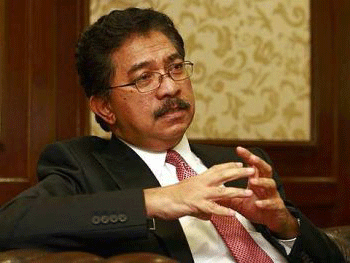
FTAs create a conducive environment for investments by providing protection to investment and enhancing Malaysia’s standing as an attractive investment destination. This will strengthen investor confidence and translate into potential employment opportunities and provide more choices at competitive prices for the consumer.
Contrary to arguments put forth by some critics, FTAs prompt local companies to work harder and become more efficient to stay competitive. The concessions accorded under FTAs are normally granted in stages over a period of time; long enough for the domestic producers to adapt their production processes to meet the increased competition in the domestic market.
Learn more about FTAs by reading “FTAs – Creating An Environment For Fair Trade ”. Also featured is the Malaysia-New Zealand FTA which helped increase the confidence of a New Zealand based company to invest in Malaysia and how the Malaysia-Japan Comprehensive Economic Partnership Agreement...
Read MoreJune 26, 2015 , by admin2
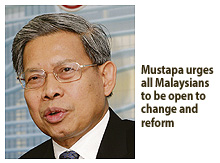
RANKINGS have now become commonplace. Countries are being benchmarked based on the level of transparency and the integrity of their institutions. In the economic sphere, the competitiveness of countries is evaluated on an annual basis by a number of institutions.
These rankings have played a role in shaping people’s perceptions about countries and institutions. They may not be entirely accurate, but many take heed of the assessments. And, even if they do not provide complete assessments, they do influence decision-making.
Each year, the Ministry of International Trade and Industry (Miti) monitors the results of three major international reports on countries’ competitiveness, namely the World Competitiveness Yearbook (WCY) 2010 by the Institute of Management Development (IMD), the Global Competitiveness Report (GCR) 2010-2011 by the World Economic Forum (WEF) and the Doing Business (DB) Report by the World Bank.
Many parties may not agree with the criteria or the scores...
Read MoreJune 26, 2015 , by admin2
International Trade and Industry Minister, Y.B. Dato’ Sri Mustapa Mohamed, will lead a trade and investment delegation to the United States covering Atlanta, Philadelphia and Washington DC from September 17 to 24, 2010 to bolster bilateral economic and trade relations.
He will also attend the Global Services Summit 2010 in Washington DC where he will be among panellists for the Expanding Services Trade and Investment: A Vision for the Asia-Pacific forum.
“This mission marks the government’s continuing efforts to draw more foreign investment from the US. We hope that through such programmes, we can attract more American investors and industry players into Malaysia and boost two-way trade relations,” Dato’ Sri Mustapa said.
“This time around, we will focus on investments from high-technology sectors which have the potential to generate more job opportunities and at the same time create a higher-valued ’spin-off’ effect within the industry.”
Media Release Read MoreJune 25, 2015 , by admin2
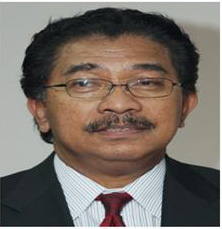
Asean Economic Community (AEC) will be established in January 2015. The establishment of the AEC will enable the 10 ASEAN member countries to work hand-in-hand in making the region a dynamic business destination. To date, 3 key agreements have been implemented to enhance free flow of goods, services and investment. ASEAN countries are working on opening up the services sector and remove barriers to allow for free flow of trade in services within the region.
The article by the Secretary General of MITI, Y.Bhg. Tan Sri Abdul Rahman Mamat, sheds light on Realising ASEAN vision via AEC.
Read MoreJune 25, 2015 , by admin2
 Highlights of the MITI Weekly Bulletin, Vol. 118 include:
APEC Leaders See Progress in Achieving Bogor Goals
Asia-Pacific Economic Cooperation (APEC) had undertaken an assessment on the realisation of its 2010 Bogor Goals’ target of free and open trade and investment in the Asia Pacific for specifically its industrialised member economies. Outcomes of the assessment were tabled at the APEC Economic Leaders’ Meeting (AELM) in Yokohama, Japan, 13-14 November 2010. The assessment indicated that…
Malaysia-Chile Free Trade Agreement
The Malaysia-Chile Free Trade Agreement (MCFTA) was signed on 13 November 2010 in Yokohama, Japan. Chile will undertake full elimination of import duties for 6,900 tariff lines (90.2% of total tariff lines) from the date of entry into force of the Agreement. The Malaysian business community is encouraged to take full advantage of the opportunities offered under this FTA.
The 1-Innocert Programme: 1-Innovation Certification for Enterprise...
Highlights of the MITI Weekly Bulletin, Vol. 118 include:
APEC Leaders See Progress in Achieving Bogor Goals
Asia-Pacific Economic Cooperation (APEC) had undertaken an assessment on the realisation of its 2010 Bogor Goals’ target of free and open trade and investment in the Asia Pacific for specifically its industrialised member economies. Outcomes of the assessment were tabled at the APEC Economic Leaders’ Meeting (AELM) in Yokohama, Japan, 13-14 November 2010. The assessment indicated that…
Malaysia-Chile Free Trade Agreement
The Malaysia-Chile Free Trade Agreement (MCFTA) was signed on 13 November 2010 in Yokohama, Japan. Chile will undertake full elimination of import duties for 6,900 tariff lines (90.2% of total tariff lines) from the date of entry into force of the Agreement. The Malaysian business community is encouraged to take full advantage of the opportunities offered under this FTA.
The 1-Innocert Programme: 1-Innovation Certification for Enterprise...June 25, 2015 , by admin2
 Highlights of the MITI Weekly Bulletin, Vol. 119 include:
MoU between Malaysia and the Republic of Korea on Origin Certification and Verification
The Memorandum of Understanding (MoU) between the Government of Malaysia and the Republic of Korea on Governing Mutual Administrative Assistance and Cooperation in Origin Certification and Verification under the Agreement on Trade in Goods was signed on 15 November 2010. Malaysia-Korea will devise new strategies to double trade in the next few years.
MIM-MPC Malaysian Management Capability Index 2010
The Malaysia Institute of Management - Malaysia Productivity Corporation (MIM-MPC) Malaysian Management Capability Index (MCI) 2010 Report was launched on 27 October 2010. The Study produced the overall index for Malaysian management capability and the index for the individual organisation’s management capability. Findings of the MCI 2010 Research Study suggest that Malaysians have fared well and are moving towards achieving...
Highlights of the MITI Weekly Bulletin, Vol. 119 include:
MoU between Malaysia and the Republic of Korea on Origin Certification and Verification
The Memorandum of Understanding (MoU) between the Government of Malaysia and the Republic of Korea on Governing Mutual Administrative Assistance and Cooperation in Origin Certification and Verification under the Agreement on Trade in Goods was signed on 15 November 2010. Malaysia-Korea will devise new strategies to double trade in the next few years.
MIM-MPC Malaysian Management Capability Index 2010
The Malaysia Institute of Management - Malaysia Productivity Corporation (MIM-MPC) Malaysian Management Capability Index (MCI) 2010 Report was launched on 27 October 2010. The Study produced the overall index for Malaysian management capability and the index for the individual organisation’s management capability. Findings of the MCI 2010 Research Study suggest that Malaysians have fared well and are moving towards achieving...June 25, 2015 , by admin2
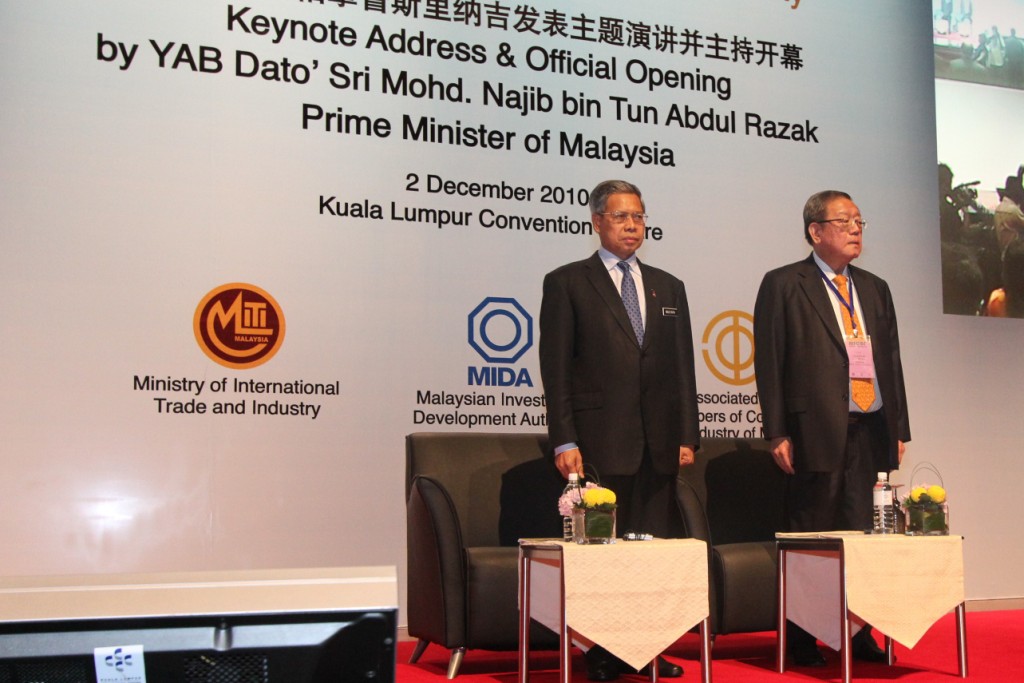
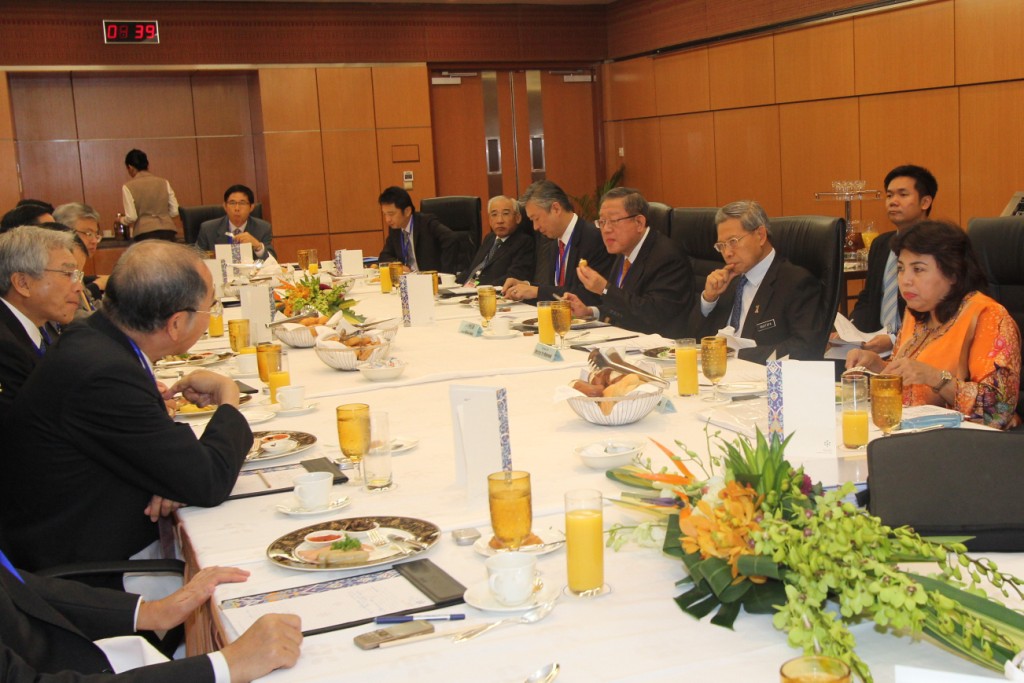
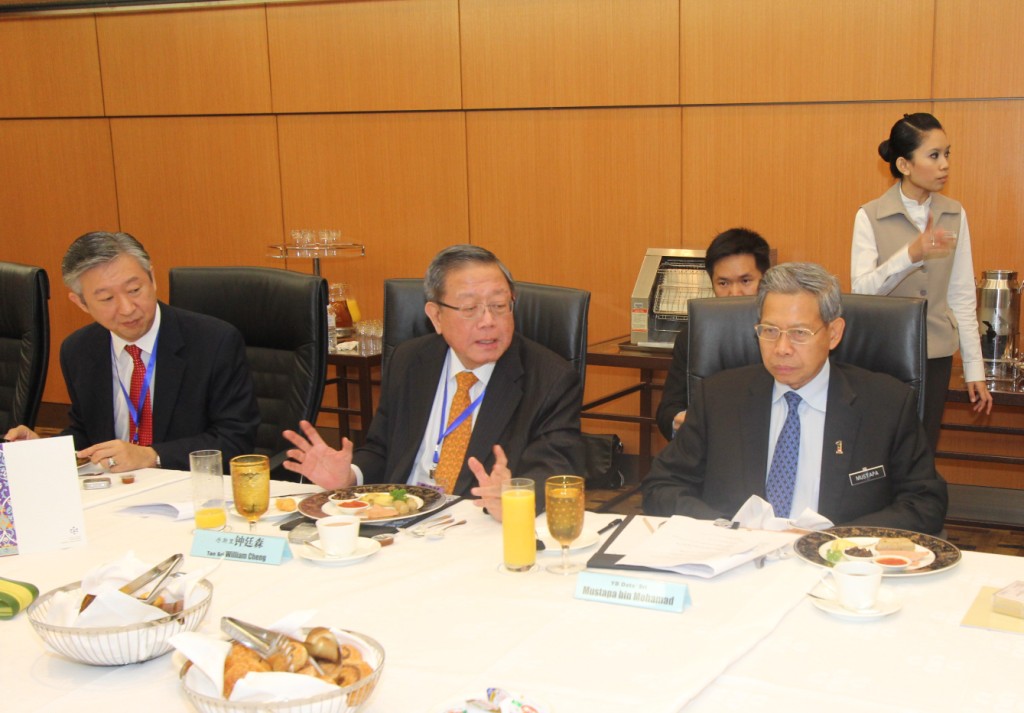
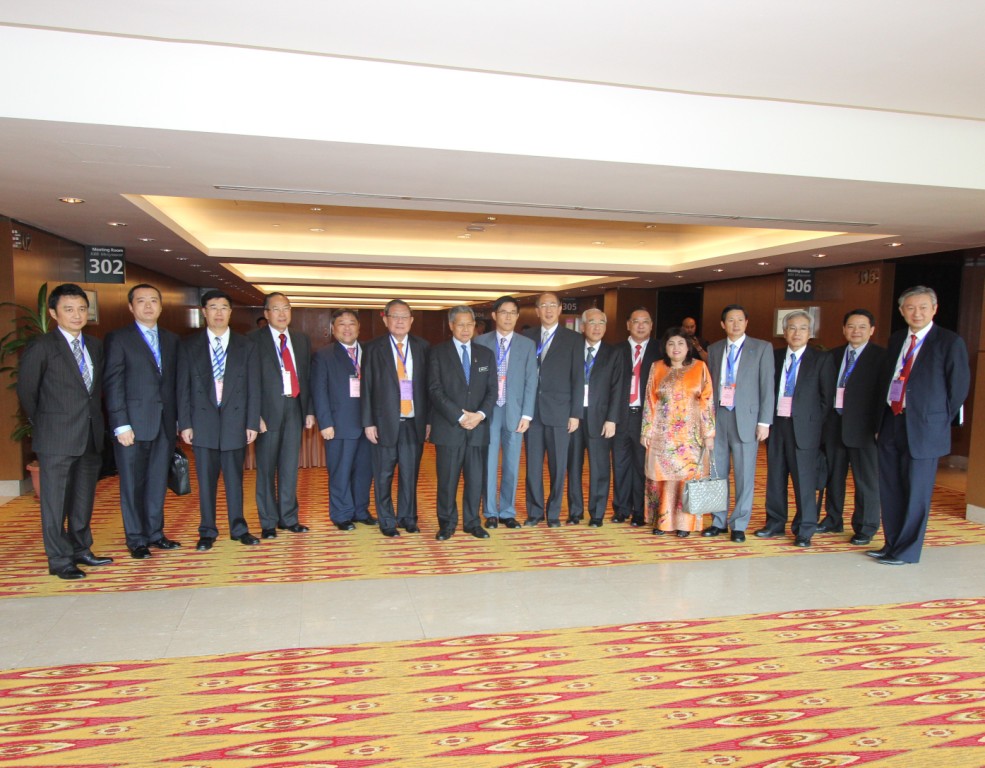
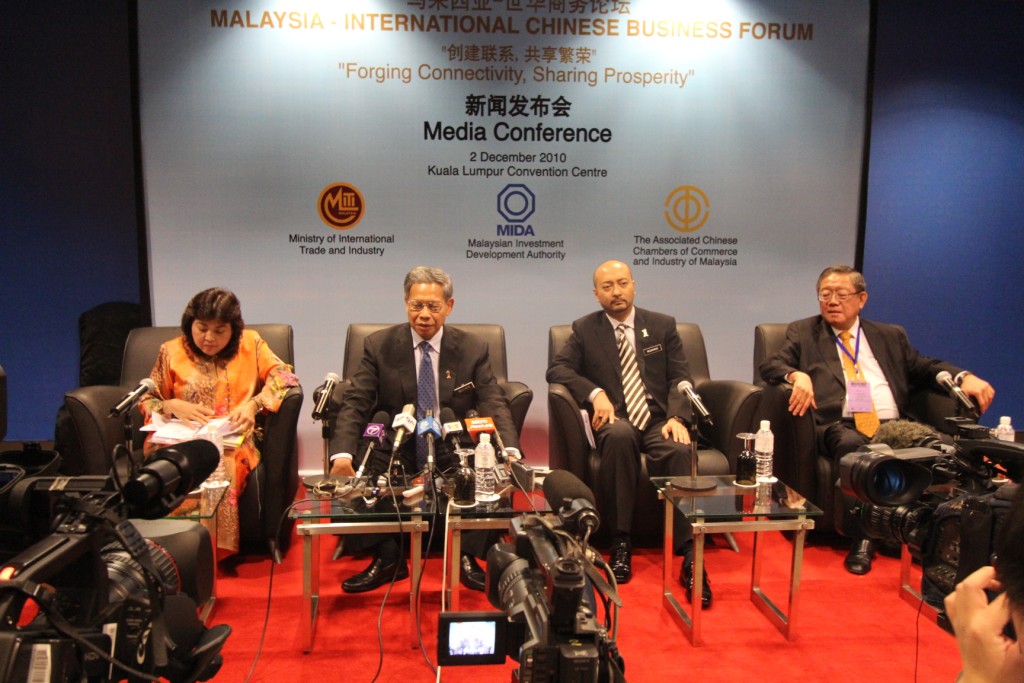
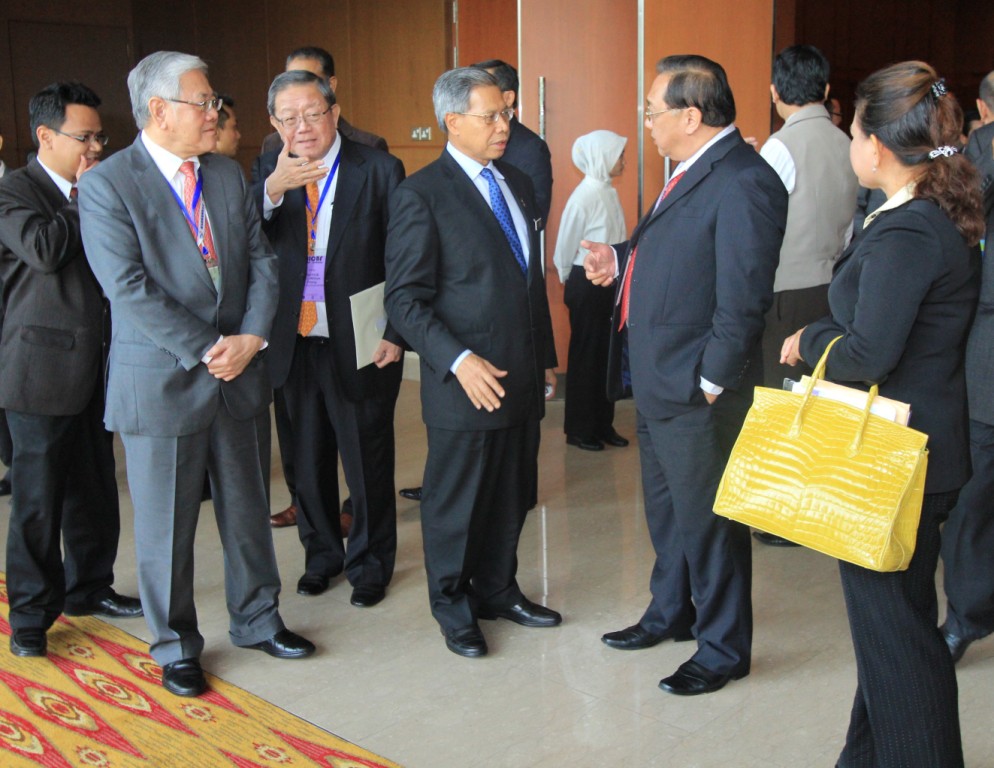
The Malaysia-International Chinese Business Forum (MICBF), held from 1-3 December with the theme “Forging Connectivity, Sharing Prosperity”, attracted more than 700 local and foreign business leaders. The main objectives of MICBF were to:
• promote Malaysia as the preferred destination for foreign investment; and
• facilitate investment partnership in promoted activities and projects.
MITI Minsiter officiated the forum and led a special dialogue session with participants from China, Hong Kong, Taiwan and Singapore. It must be noted that Malaysia’s trade with these four economies amounted to US$92.6 billion in 2009 , making up one third of the country’s total trade .
Among the issues discussed include improving the implementation of Malaysian foreign labour policy, visas for expatriates and foreign professionals and investment in Terengganu and East Malaysia. The outcome of the forum also suggested that the...
Read MoreJune 25, 2015 , by admin2
The UNCTAD Global Investment Trends Monitor: Global And Regional FDI Trends in 2010 report records an impressive 409.7 % FDI growth in Malaysia - USD7 billion FDI inflow in 2010, compared with USD1.4 billion in 2009; which is also the highest among the 153 economies surveyed by UNCTAD. The world FDI inflow in 2010 stood at USD 1.12 trillion.
These figures are reflective of the increasing investor confidence in Malaysia and the successful implementation of the economic transformation and reform programmes, contained in the New Economic Model.
Investments in the manufacturing sector also increased from RM32.6billion in 2009 to RM47.2 billion in 2010. It must also be noted that the local bourse hit the highest mark on 7 January 2011 at 1,572.21 points.
MITI has also established an Investment Committee, co-chaired by Y.B. Dato’ Sri Mustapa Mohamed and YB Senator Dato’ Seri Idris Jala, CEO ofPEMANDU, to monitor, address and resolve cross-cutting investment-related...
Read More
 1164 Views
1164 Views